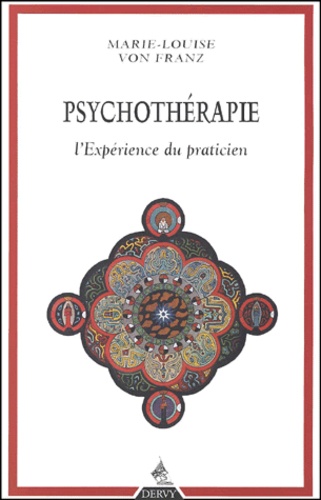

Jung in our time, have been translated into 23 languages. To date, her publications that include psychological interpretations of fairytales and dreams, as well as texts on alchemy, the medieval Holy Grail, the visions of Niklaus von Flüe, the puer aeternus, her research into synchronicity and her masterful „inner“ biography on the significance of C. Jung and Marie-Louise von Franz in Zurich. In addition, she was the Honorary President of the Research- and Training Centre for Depth Psychology according to C. In 1974, together with some friends, she founded the Stiftung für Jung’sche Psychologie Küsnacht ZH (Foundation for Jungian Psychology Küsnacht ZH). For many years she was a lecturer and training analyst at the C. She expanded his later work Mysterium coniunctionis with an interpretation of Aurora consurgens, a Christian-alchemical text attributed to Thomas of Aquinas. Jung until his death in 1961, particularly in connection with his studies in alchemy. From 1934 onwards, she worked closely with C. An insightful exploration of the tenets of psychotherapy, from lauded Jungian psychologist Marie-Louise von Franz In twelve essayseight of which appear here in English for the first timethe internationally known analyst Marie-Louise von Franz explores important aspects of psychotherapy from a Jungian perspective. doi: 10.1056/nejm199311113292004.Marie-Louise von Franz earned her doctorate in philology at the University of Zurich. The effect of angiotensin-converting-enzyme inhibition on diabetic nephropathy. Lewis EJ, Hunsicker LG, Bain RP, Rohde RD. Renoprotective effect of the angiotensin-receptor antagonist irbesartan in patients with nephropathy due to type 2 diabetes. Lewis EJ, Hunsicker LG, Clarke WR, et al. Effects of losartan on renal and cardiovascular outcomes in patients with type 2 diabetes and nephropathy. Ann Marie Yamada, PhD, School of Social Work, University of Southern. Webster AC, Nagler EV, Morton RL, Masson P. Handbook of cultural psychology / edited by Shinobu Kitayama and Dov Cohen. Associations of kidney disease measures with mortality and end-stage renal disease in individuals with and without diabetes: a meta-analysis. (Funded by Boehringer Ingelheim and others EMPA-KIDNEY number, NCT03594110 EudraCT number, 2017-002971-24.).Ĭopyright © 2022 Massachusetts Medical Society.įox CS, Matsushita K, Woodward M, et al. The rates of serious adverse events were similar in the two groups.Īmong a wide range of patients with chronic kidney disease who were at risk for disease progression, empagliflozin therapy led to a lower risk of progression of kidney disease or death from cardiovascular causes than placebo. The rate of hospitalization from any cause was lower in the empagliflozin group than in the placebo group (hazard ratio, 0.86 95% CI, 0.78 to 0.95 P = 0.003), but there were no significant between-group differences with respect to the composite outcome of hospitalization for heart failure or death from cardiovascular causes (which occurred in 4.0% in the empagliflozin group and 4.6% in the placebo group) or death from any cause (in 4.5% and 5.1%, respectively). Results were consistent among patients with or without diabetes and across subgroups defined according to eGFR ranges. The prominent Jungian psychologist Marie-Louise Von Franz wrote: Jung defined projection as an unconscious, that is unperceived and unintentional, transfer.

During a median of 2.0 years of follow-up, progression of kidney disease or death from cardiovascular causes occurred in 432 of 3304 patients (13.1%) in the empagliflozin group and in 558 of 3305 patients (16.9%) in the placebo group (hazard ratio, 0.72 95% confidence interval, 0.64 to 0.82 P<0.001). The primary outcome was a composite of progression of kidney disease (defined as end-stage kidney disease, a sustained decrease in eGFR to <10 ml per minute per 1.73 m 2, a sustained decrease in eGFR of ≥40% from baseline, or death from renal causes) or death from cardiovascular causes.Ī total of 6609 patients underwent randomization. Patients were randomly assigned to receive empagliflozin (10 mg once daily) or matching placebo. We enrolled patients with chronic kidney disease who had an estimated glomerular filtration rate (eGFR) of at least 20 but less than 45 ml per minute per 1.73 m 2 of body-surface area, or who had an eGFR of at least 45 but less than 90 ml per minute per 1.73 m 2 with a urinary albumin-to-creatinine ratio (with albumin measured in milligrams and creatinine measured in grams) of at least 200.
#MARIE LOUISE VON FRANZ PSYCHOTHERAPY .PDF TRIAL#
The EMPA-KIDNEY trial was designed to assess the effects of treatment with empagliflozin in a broad range of such patients. The effects of empagliflozin in patients with chronic kidney disease who are at risk for disease progression are not well understood.


 0 kommentar(er)
0 kommentar(er)
